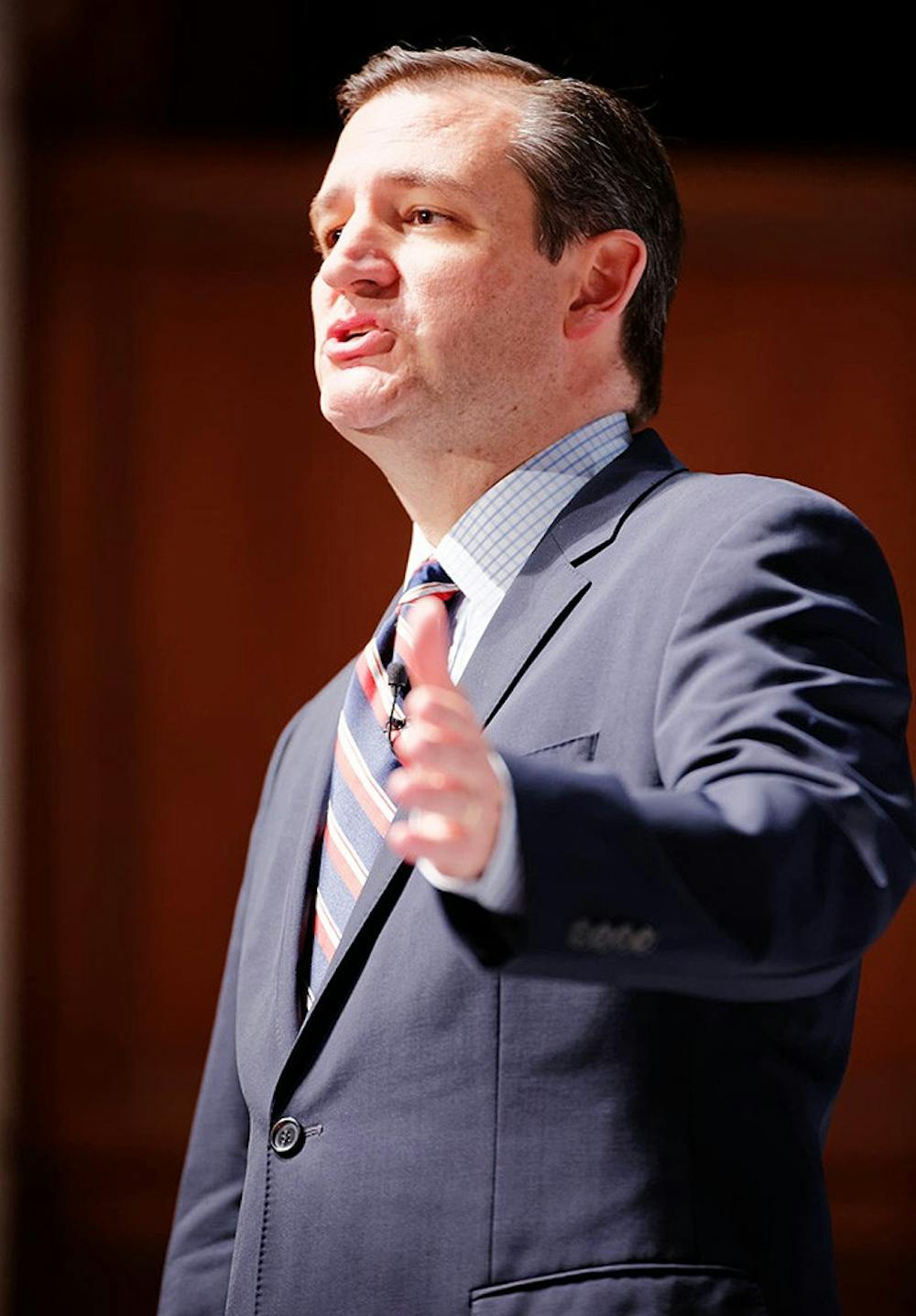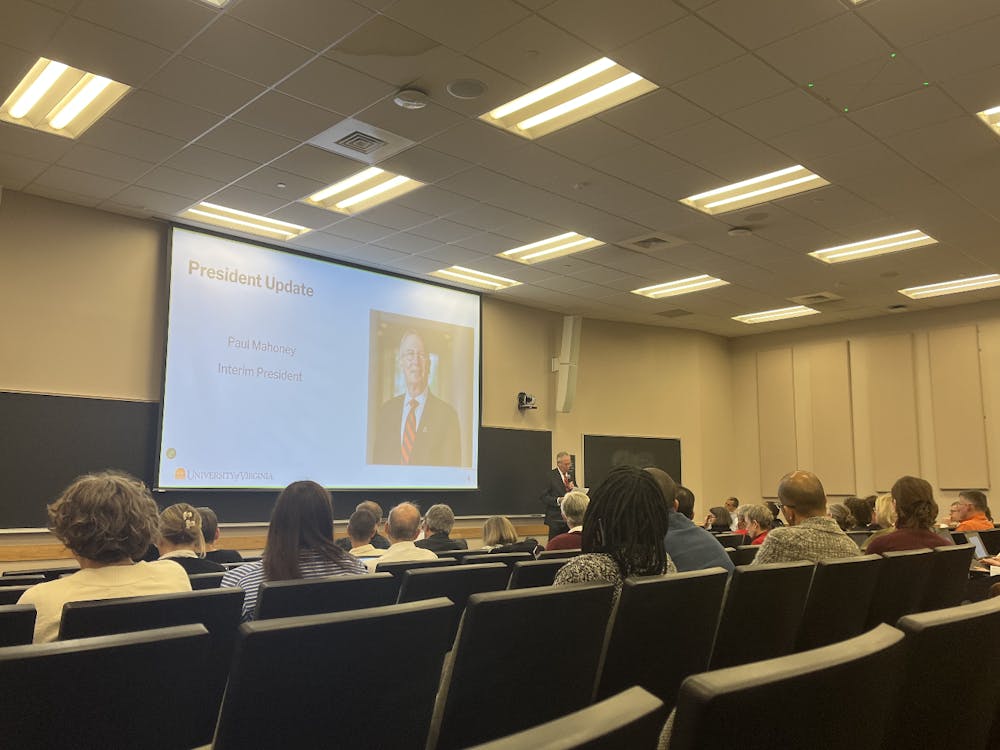During the presidential primaries, Republican presidential candidate Ted Cruz has faced questions about his status as a “natural-born” citizen.
The U.S. Constitution requires the president to be a minimum of 35 years of age, a resident of the United States for 14 years and a natural-born citizen.
Cruz was born in Calgary, Canada and his mother was a U.S. citizen. Fellow Republican presidential candidate Donald Trump, as well as some legal scholars, have raised questions about whether Cruz is a natural-born citizen.
Law Prof. David Martin said this controversy begins with the argument over the definition of a natural-born citizen.
“Some people claim that [it] means you have to be born in the United States,” Martin said. “Others say it simply means that you were a citizen from the time of birth.”
Martin said there are battles in academic literature and the popular press about how the phrase “natural-born” should be interpreted.
Personally, Martin said he believes it makes the most sense to “construe it simply as the person was a citizen from birth, wherever he or she may have been born.”
While some believe one interpretation is clearer than the other, other academics, such as Law Prof. John Harrison, do not necessarily agree.
“There is [no clear answer] that scholars have come to, nor do I think there is [an answer] that is clearly right,” Harrison said. “There are considerations in the opposite direction. The answer is not clear.”
Although there is not a consensus on the issue, Martin said the predominant opinion is natural-born citizenship does not require birth in a U.S. territory if one parent is an American citizen who has lived in the United States. Under this definition and Cruz’s circumstances, the U.S. Senator from Texas would qualify to serve as president.
The Supreme Court has not ruled on a case defining what qualifies a citizen as natural-born, raising the question of whether a future court case will determine Cruz’s eligibility and explicitly define what it means to be a natural-born citizen.
“Whether a case would determine it, I don’t know,” Harrison said. “But it could certainly come up if Cruz were elected president and took office.”
Martin said there are only two scenarios in which a court would accept such a case, because federal courts can only consider cases or controversies which pose a “concrete and immediate harm” to an individual.
The first scenario would be if Cruz was elected president and an individual were directly affected by a power exercised by him, Martin said; however, he said this would not be the best time to resolve the issue, because Cruz would be well into exercising his presidential powers.
The second scenario would be prior to Cruz being elected president. If an election official in a state tried to prevent Cruz’s name from being on the ballot in the primary or general election, for example, Cruz could sue to require his name be included on the ballot, Martin said.
Harrison said it is difficult to predict whether or not a court case would occur prior to Cruz potentially being elected president.
“The question whether any court would come up with a way to address the question in a anticipatory context is harder,” Harrison said.
Additionally, most court cases take a couple of years of litigation in order to reach the Supreme Court. Only in rare instances — such as the case involving Richard Nixon’s tapes in the Watergate scandal — has a case reached the Supreme Court within a matter of months, Martin said.
“I don’t expect to see [a situation] where the court just resolves [the issue], especially not at the Supreme Court level between now and the election in November,” Martin said.
It is unclear how much of an impact this controversy will have on the presidential election.
Third-year College student and University Democrats President Sam Tobin said he hopes it will have little impact.
“I hope Ted Cruz, like every other candidate, will be judged on the merits of his candidacy,” Tobin said. “This election should not be whether Ted Cruz is a natural-born citizen or not, it should be whether Ted Cruz would make a good president or not.”
Jay Boyd, fourth-year College student and president of College Republicans, said while he could not comment on the natural-born citizenship debate, the College Republicans plan to support the Republican nominee in the fall.
“The College Republicans are excited to work for whomever is the Republican nominee and ensure he or she beats the [Democratic] candidate,” Boyd said in an email statement.
Two lawsuits — one in Texas and another in Utah — were filed in federal courts in January to determine Cruz’s natural born status. These cases are yet to be decided.







